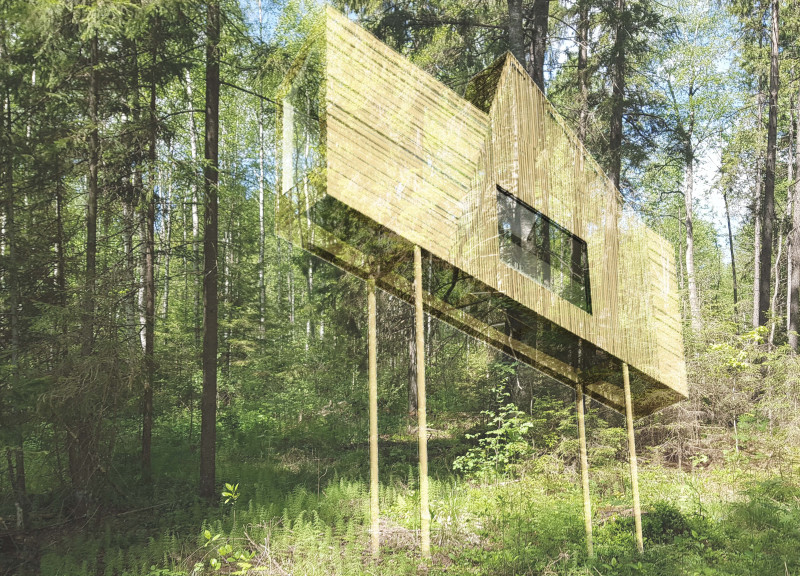5 key facts about this project
Design Innovation in Modular Planning and User Interaction
The project utilizes a modular design approach, allowing for flexibility in the arrangement of the cabins within the site. This grid system facilitates a customizable layout, where each user can select their perspective of the landscape. The elevation of the structures enhances views and integrates the cabins seamlessly into the site’s natural topography. The use of cross-laminated timber (CLT) not only ensures structural strength but also emphasizes environmental sustainability by reducing the carbon footprint associated with construction.
The architectural form encourages users to connect with nature, featuring large glass facades that allow natural light to flood the interiors while providing unobstructed views of the forest. This design choice promotes a continuous flow between indoor and outdoor spaces, emphasizing the project's goal of fostering a deeper relationship with the environment.
Sustainable Practices and Materiality
A significant element of the Silent Meditation Forest Cabins project is its commitment to sustainability. The use of locally sourced materials such as Norway spruce for cladding highlights a conscious approach to reducing transportation emissions. Additionally, rainwater collection systems and solar panels contribute to the energy efficiency of the cabins, aligning the architectural design with principles of ecological responsibility.
The integration of hydronic radiant heating and cooling systems further supports energy conservation while enhancing the user's comfort. The buffer zone entryway effectively moderates temperature fluctuations, providing a practical transition between the outside environment and the cabin interiors.
For a comprehensive understanding of the technical aspects and design innovations within the Silent Meditation Forest Cabins project, interested readers are encouraged to explore the architectural plans, sections, and detailed design ideas presented throughout the project materials.


























